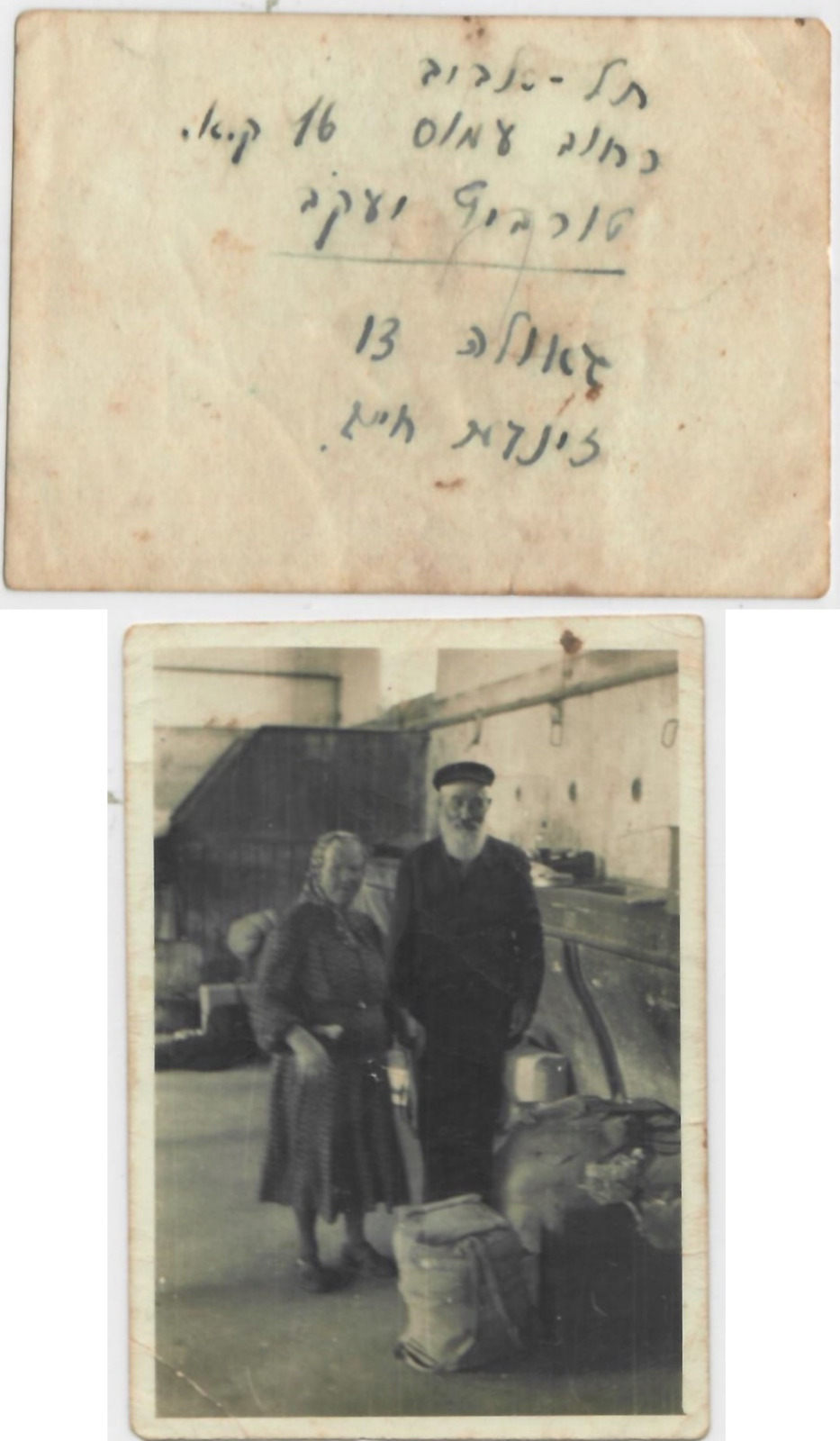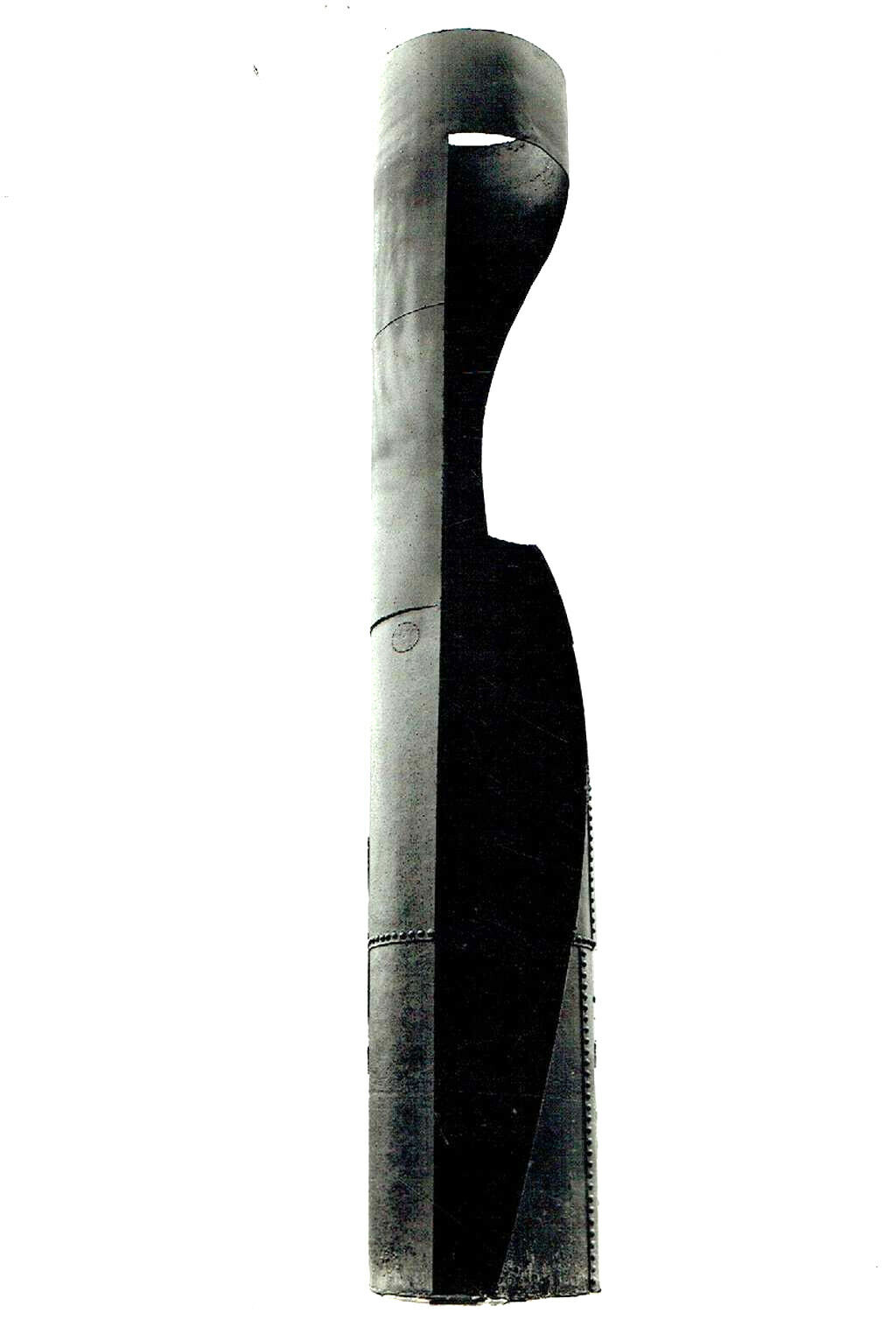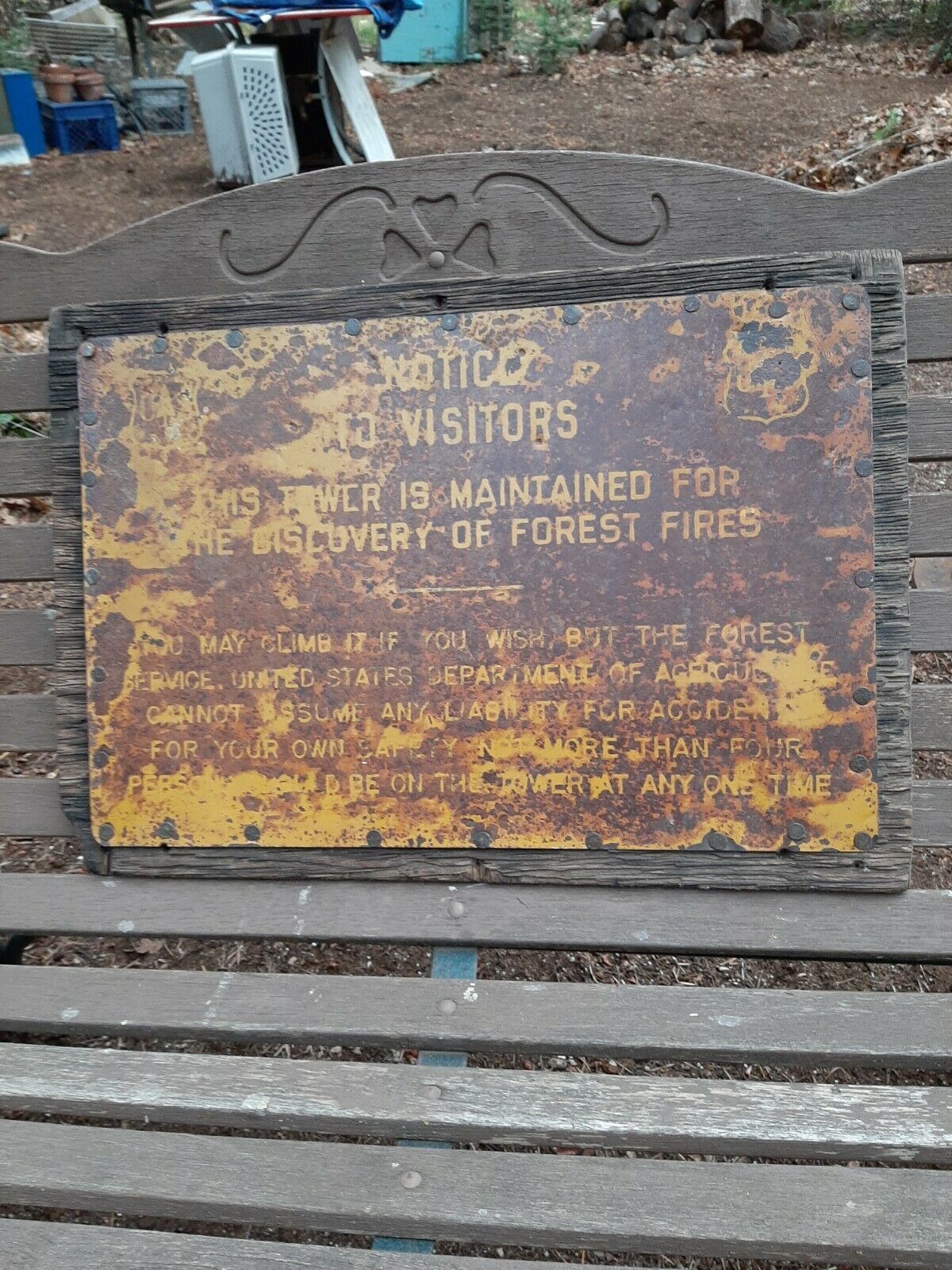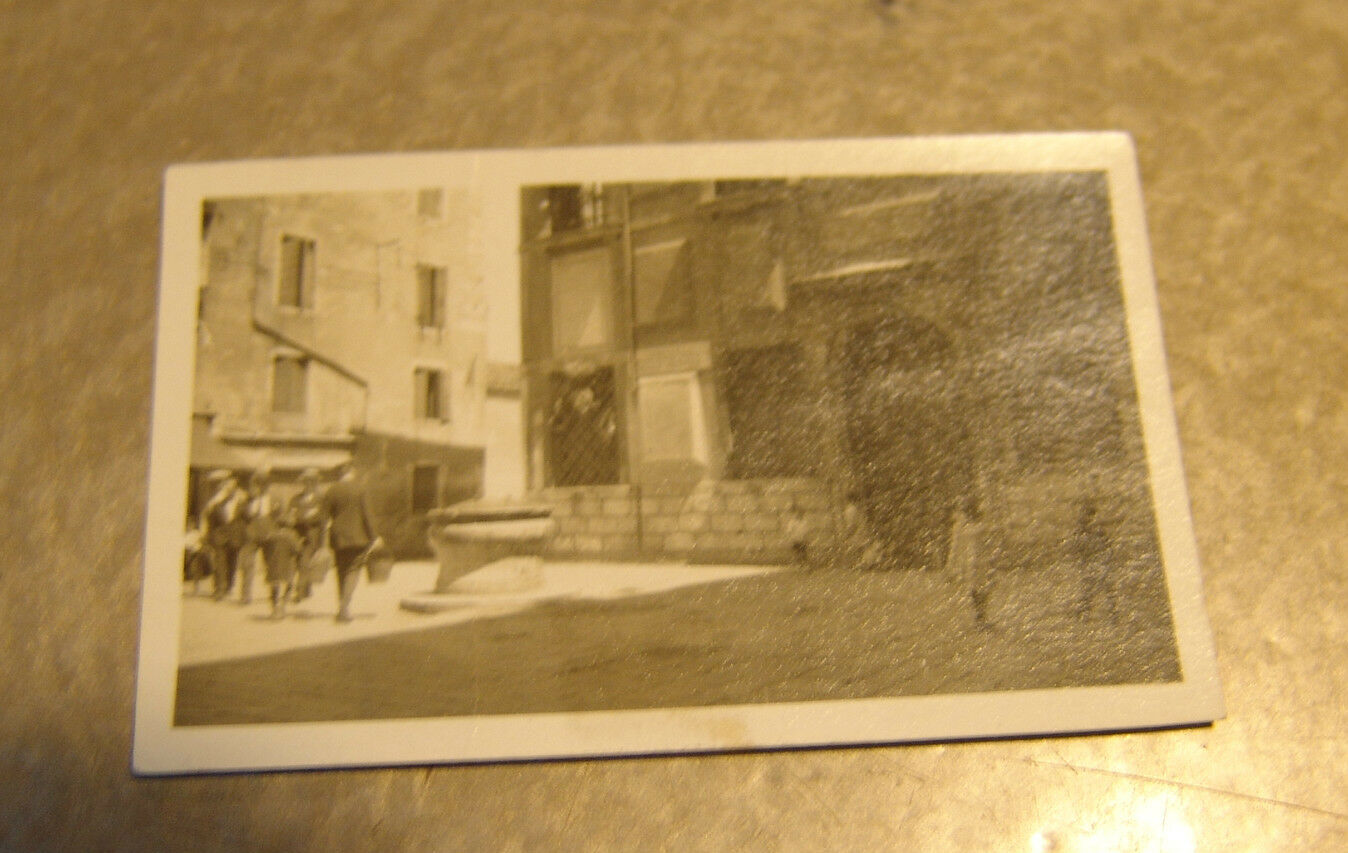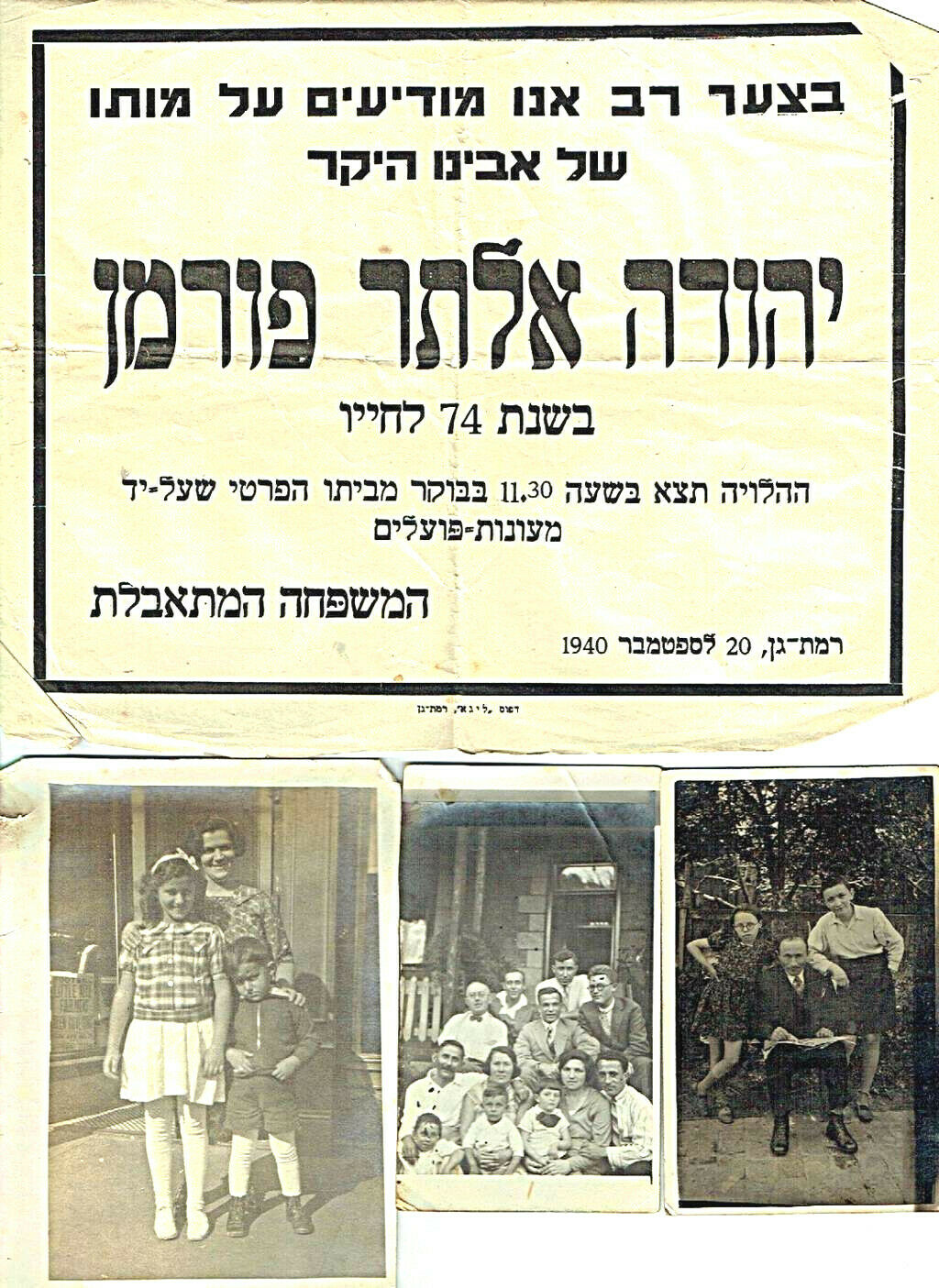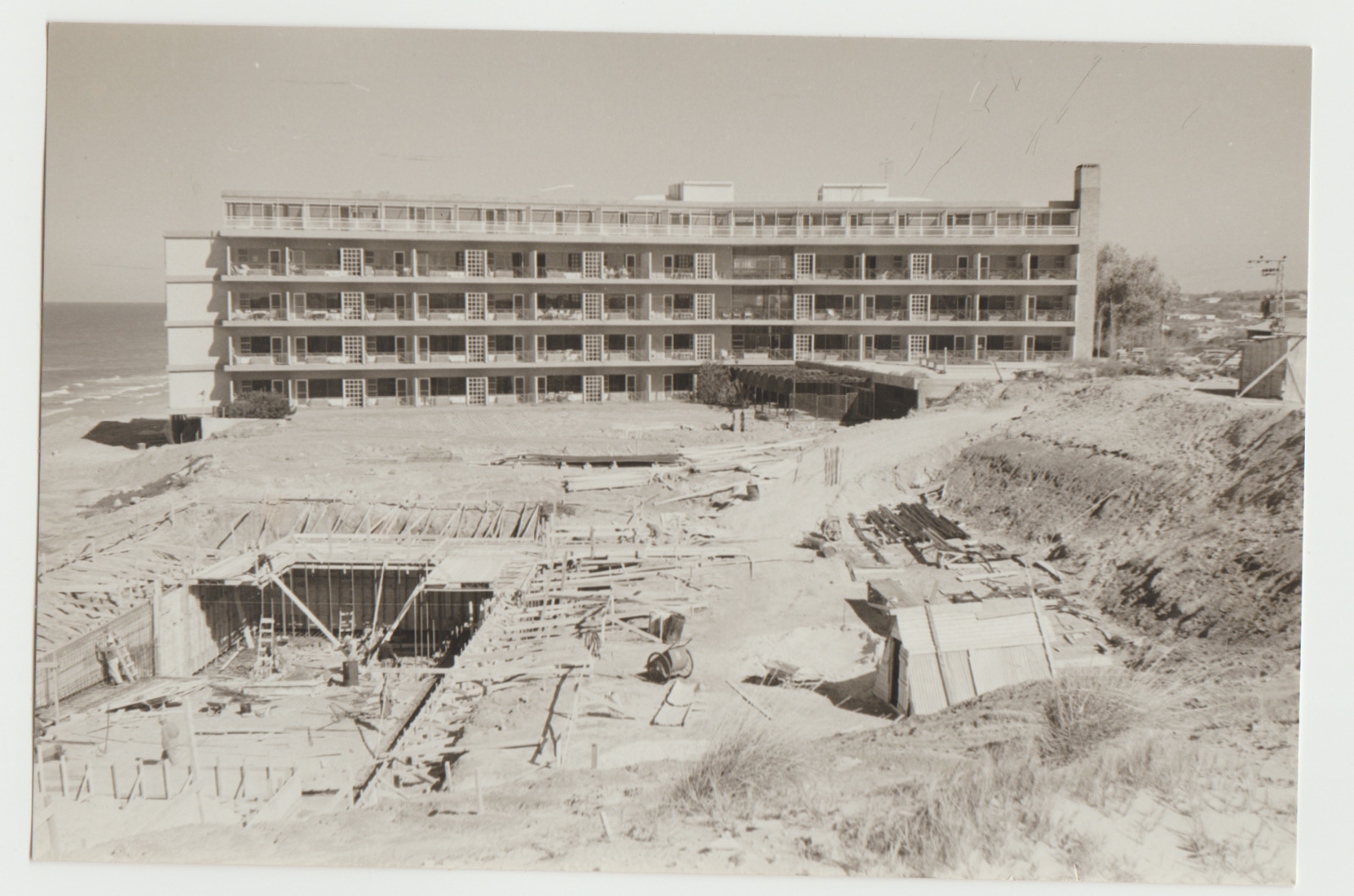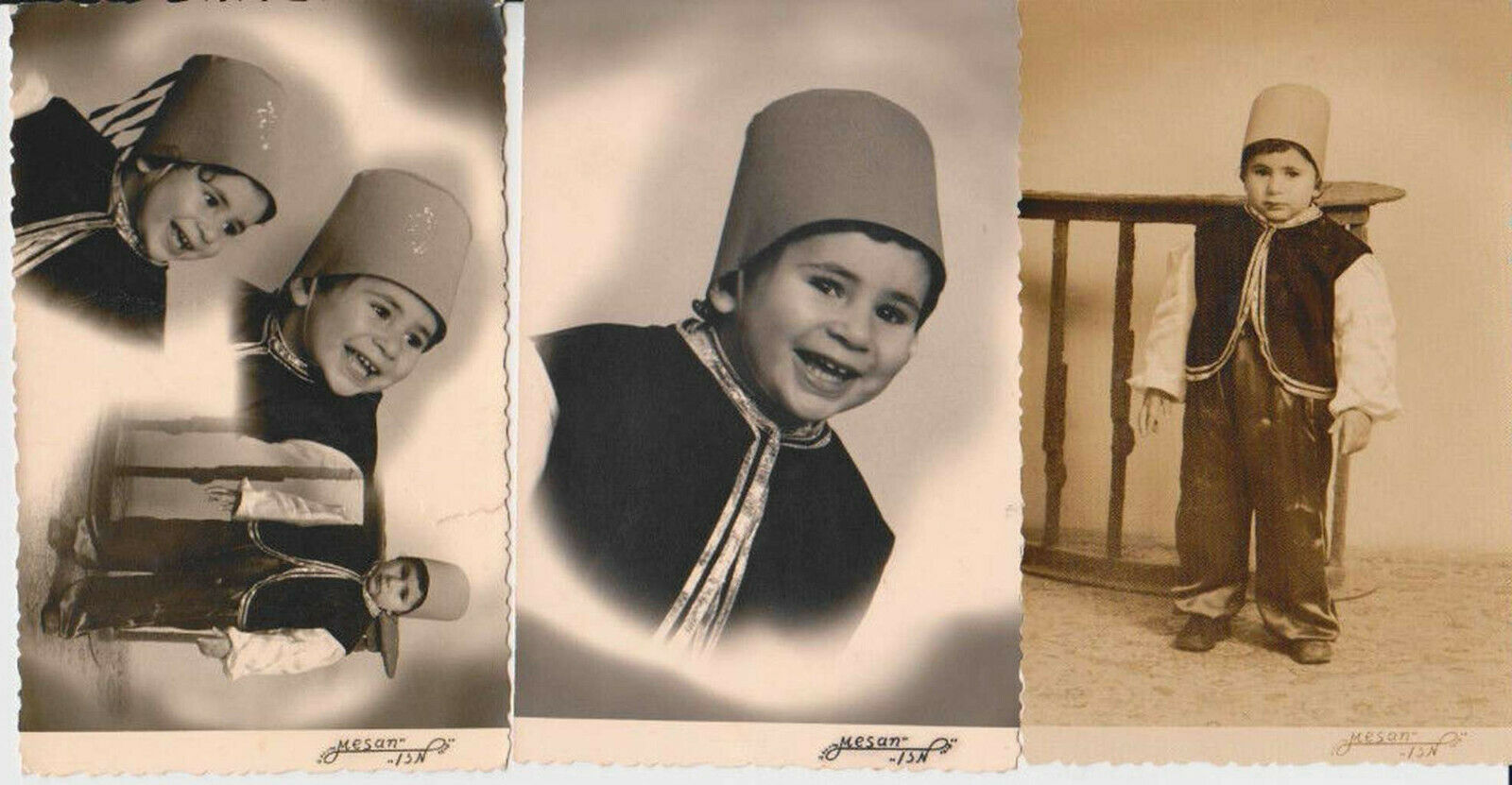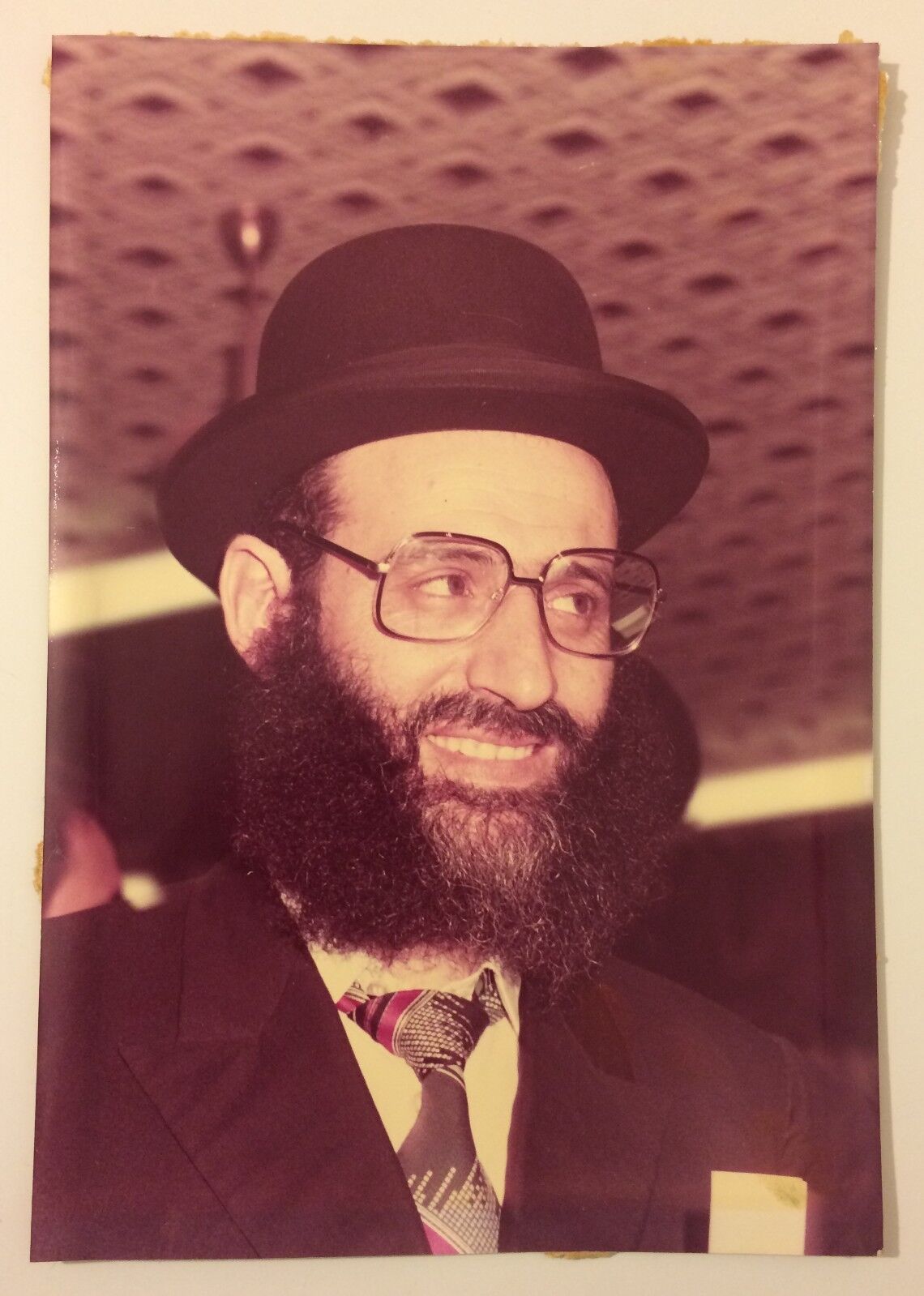-40%
1982 Israel HEBREW Cult FILM Movie POSTER Assi Dayan FINAL EXAMS Jewish JUDAICA
$ 29.04
- Description
- Size Guide
Description
DESCRIPTION:
Up for auction is an almost 35 years old RARE and ORIGINAL Jewish - Judaica MOVIE POSTER for the ISRAEL 1982 PREMIERE of the ISRAELI CULT FILM , Directed by ASSI DAYAN
"
BCHINAT BAGRUT
" ( Also"
FINAL EXAMS
" or "
בחינת בגרות
" ) , Based on the m,ost popular GALILA RON FEDER AMIT book. Starrig the top row of the new young generation of ISRAEL THEATRE and FILM actors . Written and directed by the Israeli film director
ASSI DAYAN
.
Text in HEBREW . Please note : This is NOT a re-release poster but a PREMIERE - FIRST RELEASE projection of the film in 1982
.Size around 20" x 14" ( Not accurate ) . Printed in colors on chromo paper .
The condition is very good .
( Pls look at scan for accurate AS IS images ) Poster will be sent rolled in a special protective rigid sealed tube.
AUTHENTICITY
: This poster is guaranteed ORIGINAL from 1982 , NOT a reprint or a recently made immitation. , It holds a life long GUARANTEE for its AUTHENTICITY and ORIGINALITY.
PAYMENTS
:
Payment method accepted : Paypal
& All credit cards
.
SHIPPMENT
:
SHIPP worldwide via registered airmail $ 25 ( Israeli domestic shipp only with buy it now ). Poster will be sent rolled in a special protective rigid sealed tube.
Handling around 5 days after payment.
Bchinat Bagrut Narrative, 1983. 90mins. Directed by: Assi Dayan Average user rating: Login to rate this Synopsis: Roni and Orna are the most talked about couple at their high-school. When Orna gets pregnant unexpectedly, they decide to go through an abortion. This decision is revisited when they receive news about the death of their good friend from high school as a soldier. Subject: Romance, Adolescence, Sexuality Director: Assi Dayan Producers: Natan Alter Assi Dayan From Wikipedia, the free encyclopedia Assi Dayan אסי דיין Assi Dayan, 2007 Born 23 November 1945 Nahalal,[1] Mandatory Palestine Died 1 May 2014 (aged 68) Tel Aviv, Israel Occupation Director, actor, screenwriter Asaf "Assi" Dayan (Hebrew: אסף "אסי" דיין; 23 November 1945 – 1 May 2014) was an Israeli film director, actor, screenwriter and producer. Contents 1 Personal life2 Acting career3 Directing career4 Awards5 Filmography (selected)6 References7 External links Personal life Assi Dayan is the youngest son of Israeli general and minister of defence Moshe Dayan and peace activist Ruth Dayan (née Schwartz). He has two siblings: politician and author Yael Dayan, born 1939,[2] and sculptor Ehud (Udi) Dayan, born 1942.[3] After military service and studying philosophy and English literature at the Hebrew University of Jerusalem, he embarked on a career as film actor, which eventually also lead to directing.[1] He has been married three times and has four children: New York gallery owner Amalia Dayan[4] and Avner Dayan with first wife Aharona Melkind; writer Lior Dayan with second wife, actress Caroline Langford,[5] daughter of Barry Langford, and Assia Neumann Dayan after a short affair with Augusta Neumann.[3] In 1999, his third wife, ceramic artist Vered Tandler Dayan, made a documentary film about him, Living, Period.[6] In March 2009, Dayan was indicted on suspicion of drug use and beating his girlfriend. In the wake of an earlier conviction for possession of drugs, he received a suspended sentence and 200 hours of community work as part of a plea bargain. Dayan admitted at the time that he was in possession of cocaine for personal use.[7] In November 2009, Dayan suffered a massive heart attack and underwent angioplasty at Tel Aviv's Ichilov hospital.[8] Acting career In 1967, Dayan established himself as a film actor and Israeli icon in He Walked Through the Fields, Yossi Milo's adaptation of Moshe Shamir's novel and play by that name.[9] That year, he appeared in Micha Shagrir's Scouting Patrol, about elite fighters on a mission to capture the commander of a fedayeen squad.[10] In 1969 Dayan co-starred in the American movie A Walk with Love and Death, set in medieval France and directed by John Huston, in which he plays alongside Huston's daughter, Angelica.[11] He portrayed Giora Geter, owner of a Tel Aviv pub whose life falls apart, in Eitan Green's Into the Night.[10] In 1984, Dayan had a supporting role as a prisoner in Uri Barbash's Beyond the Walls, described as an important milestone in Israeli political cinema.[10] Other acting credits include Operation Thunderbolt, about the Israeli raid in Entebbe, nominated for an Academy Award for Best Foreign Language Film. Dayan is the deputy of Yoni Netanyahu, played by Yehoram Gaon.[10] Dayan played the leading role of psychologist Reuven Dagan in the TV drama series Betipul, which ran for two seasons on Israeli TV (2005 and 2008). The series was later adapted for the US market by HBO, which called it In Treatment and had Gabriel Byrne in the lead role.[8] By 2008 he had acted in some 50 films and TV series episodes.[12] Directing career From 1973 until his death in 2014, Dayan directed 16 films.[12] In 1976 he directed the film Giv'at Halfon Eina Ona, a comedy about a group of military reservists in the Sinai. This film is considered by frequent surveys to be the 'most Israeli' film of all time. In 1992, he wrote and directed Life According to Agfa, a film portraying life in a Tel-Aviv pub. The film is a very harsh critique of Israeli society at the time and was nominated for the Golden Bear at the 43rd Berlin International Film Festival and won an Honourable Mention.[13] In 1999, he was a member of the jury at the 49th Berlin International Film Festival.[14] Awards Dayan won the Israeli Academy Award as Best Actor for Mr. Baum.[11] In 1998, he received a lifetime achievement award at the Jerusalem International Film Festival. His role in Time of Favor was acclaimed by Israeli critics as his best screen role of his career.[11] Filmography (selected) A Walk with Love and Death (1969)Scouting PatrolPromise at Dawn, 1970 (actor, as Romain)Halfon Hill Doesn't Answer, 1976 (director)Operation Thunderbolt, 1976 (actor, as Shuki)The Hit, 1979 (director)The Uranium Conspiracy (1979)Moments (1979)Beyond the Walls, 1984 (actor, as Assaf)Into the Night (1985)Life According to Agfa, 1992 (director)An Electric Blanket named Moshe, 1995 (director)No Names on the Doors, 1997 (actor, as Uzi)The 92 Minutes of Mr. Baum, 1997 (director, actor, as Mr. Baum)Things Behind the SunTime of Favor (2000) (actor, as Rabbi Meltzer)Real TimeMy Father My Lord, 2007 (actor)Betipul (Television series), 2005Dr. Pomerantz, 2011 (director, actor, as Dr. Yoel Pomerantz) Dayan, Assi (1945–) - PERSONAL HISTORY, BIOGRAPHICAL HIGHLIGHTS, PERSONAL CHRONOLOGY:, INFLUENCES AND CONTRIBUTIONS, EXPLORING, THE WORLD’S PERSPECTIVE, LEGACY Tweet israeli film dayan’s sabra As a writer-director, Assaf (“Assi”) Dayan is one of Israel’s most prominent, controversial, and brilliant artists, who in his films criticizes some of his country’s national values and myths. As an actor, he personifies first the myth and then the de-mystification of the Sabra, that is, the so-called Israeli new Jew whose good looks match his bravery and combat skills. Dayan’s name was tied with repeated drug addictions as well as several failed marital adventures. He is also the author of several novels ( Table of Contents ) and popular songs. PERSONAL HISTORY Dayan was born on 23 November 1945 in Nahalal, Palestine. He was the youngest son of Moshe Dayan, who was Israel’s chief of staff and who later on, as minister of defense, was responsible for the victory against the Arab states in the 1967 War. His grandfather, Shmuel, was also a member of the Knesset (Israeli parliament) from Mapai Party, and his uncle, Ezer Weizman, was an air force commander, minister of defense, and the seventh president of the State of Israel. His older sister, Yael, is an author who was also in the Knesset and is a strong supporter of gay rights. It was probably this familial biography that turned Assi’s filmic persona into the ultimate image of the Sabra, an image from which he most desperately tried to differentiate himself, both as an actor-director and in his persistently rebellious personal life and public statements. After studying philosophy and English literature at the Hebrew University of Jerusalem, Dayan made his first screen appearance in He Walked in the Fields (1967). Based on Moshe Shamir’s classic novel that tells the story of Uri, a young kibbutz member who is torn between his love of Mika, a young immigrant, and his patriotic duties to the soon-to-be-established State of Israel (the book and the film take place in 1947, about a year before the foundation of Israel). This was one of the most successful films in the wave of nationalist-heroic films that appeared mainly after the 1967 War, and depicted young Sabras fighting and dying for their country. The traumatic 1973 War, which shattered the heroic image of the Israeli army as well as the Israeli smugness after the victory in the 1967 War, also destabilized the heroic image of the Sabra. The Israeli invasion of Lebanon in June 1982 (which was not considered a purely defensive act) divided the Israeli society for the first time between those who supported the war and those who opposed it and further undermined the Sabra image. Dayan’s persona both on and off screen expressed this demystification. In Uri Barbash’s Beyond the Walls (1984), nominated for an Academy Award as best foreign language film, Dayan plays a political prisoner sentenced for anti-state actions (his character here is based on Udi Adiv, a leftist radical who in 1973 was tried and imprisoned for meeting Palestine Liberation Organization leaders in Damascus and forming an anti-Israeli Arab-Jewish underground). In Till the End of the Night (Eithan Green, 1985) Dayan portrays an ex-military commander in the Lebanese war who was disgracefully discharged, and in Real Time (Uri Barbash, 1991) he plays a colonel who was also discharged for making hasty and erroneous decisions under fire during the 1973 War and is now insistently fighting for his complete acquittal. Dayan’s growing popularity as an Israeli film star led him to his directorial debut. Invitation to Murder (1973) was a local film noir, which told the story of an unusual police detective tracking a serial killer in the streets of Tel Aviv. Though not a significant film in the history of Israeli cinema, the film depicted Dayan’s nihilistic-surrealist approach toward contemporary life in Israel, which became clearer in his later films. His next film, Feast to the Eyes (1975) is a black comedy in which a failed poet decides to put an end to his life in a remote northern Israeli town. Here too, Dayan’s obsession with death not only emphasized his own existentialist view but also served as a metaphor to the collective Israeli psyche whose endless obsession with death resulted in the mystification of martyrdom and the heroic self-sacrifice in the battlefield. In this film, Dayan corresponded with the same nationalist-heroic films in which he gained his stardom. In 1976 Dayan wrote and directed Giv’at Halfon Doesn’t Answer , a kind of Israeli M.A.S.H , that is one of most popular Israeli films ever made. It stars Ha-Gashash ha-Hiver, a mythological comic trio, and its absurd plot focuses on their adventures during reserve duty in the Sinai Desert. It was the first film to ridicule the Israeli army in a time—just after the traumatic 1973 War and prior to the political upheaval of 1977 in which the dominant Labor Party lost the Knesset elections for the first time—when a general feeling that the basic foundations and beliefs of the Israeli society has been severely shaken. In the years following Giv’at Halfon , Dayan has made several low and common comedies (among them is the brilliantly funny social satire Shlager 1979 which also starred the Gashash trio). Mainly, these films did not attract either critical acclaim or special public attention. The only exception is Final Exams , a tender though didactic teen film about the unexpected pregnancy of a high school student. BIOGRAPHICAL HIGHLIGHTS Name: Assaf (“Assi”) Dayan Birth: 1945, Nahalal, Palestine Family: Aarona Malkind (divorced; one daughter, Amalia and one son, Avner), Caroline Langford (divorced; 1 son, Lior), Smadar Kilchinsky (divorced), Vered Tandler-Dayan (separated), Augusta Noiman (never married; 1 child, Assia Noiman) Nationality: Israeli Education: Philosophy and English literature, the Hebrew University, Jerusalem PERSONAL CHRONOLOGY: 1967: Makes first screen appearance in He Walked in the Fields 1973: Directorial debut 1992: Life according to Agfa is awarded best picture by the Israeli film academy. Wins best director and screenplay awards 1996: Best actor and screenplay awards for Mr. Baum 2006: Best actor award for the TV series BeTipul and best actor award for appearance in Things behind the Sun In the 1990s Dayan made what one might call his Nihilist Trilogy, starting with the much acclaimed Life according to Agfa (1992), an apocalyptic film shot in stark black-and-white that uses the locale of a dirty Tel Aviv pub as a microcosm of the current Israeli society—decadent, violent, aimless, and hopeless. The Zionist utopia depicted was on the verge of a collective nervous breakdown. Its clients consisted of the archetypal Zionist images: lonely and dependent women (Dalia, the pub’s owner, played by Israeli leading actress, GILA ALMAGOR, or Ricky, a troubled young woman who left her husband and little boy in the kibbutz and was lost in the big hostile city), vulgar and aggressive military men (for example, Nimrod, a broken legged warrior who, along with his unit friends, provides a distorted and parodic image of the heroic male Sabra), and the Palestinian kitchen workers whose so-called otherness is manifested in the closed and unseen territory they inhabit. Dayan had himself reflected through Tcherniac (played by Israeli blues singer, Danny Litani), the pub’s local musician who, through his satiric songs, expressed Dayan’s own disparaging view of the Zionist dystopia. The film, which gained critical and commercial success and was the subject of many arguments over its pessimistic views critical tones, ends with a violent outburst when Nimrod and his subordinates return to the pub (from which they were brutally expelled earlier) and start massacring most of the protagonists. Thus, Dayan’s apocalypse depicts Israeli militarism and inherent violence as the basis for this society’s own destruction that is due within “a year from now” as a caption at the beginning of the film says. Next came Electric Blanket (1995), a surreal fantasy that follows a homeless person, a Romanian prostitute, and her philosopher pimp (who first appeared in Agfa ) in a Dantean journey throughout a cemetery, prostitute beach, and finally an emergency room in the hospital. “No purpose. Just living, period,” is a repeated motive in this film. Though a commercial and critical failure, there are some who consider the film to be one of the best Israeli films of the 1990s. Completing the trilogy is Mr. Baum (1997) which unfolds, in real time, in the last ninety two minutes in the life of Micky Baum (played by Dayan), a successful businessman who suffers from an incurable disease. Mr. Baum fully represents the tension between the personal and the national that exists in all of Dayan’s works—a tension that is represented by his own biography and screen persona. Thus, Micky Baum himself turns into national figure. A surrealist exhibition publicly displays a magnified and detailed re-creation of several objects—a half-eaten apple, a parking ticket—that are related to Baum’s last moments. In that way, Micky Baum’s life and death become a myth: a pungent satiric comment on a militant society that lives on the rituals of heroic-manly death. In a powerful scene of full frontal nudity toward the end of the film, Dayan’s character takes his clothes off in order to have one last shower. His wretched body and bald forehead symbolize the above-mentioned decadence of the Sabra myth. In the end, it is not only Micky Baum who dies, but also the sum of the cinematic images incorporated in Dayan’s own screen persona, a function of his familial identity as the son of one of the military architects of the glorious victory of the 1967 War. It may therefore come as no surprise that Dayan’s next film was titled The Gospel according to God (2004). Dayan plays the title role, the Almighty, a dysfunctional father to adolescent son Jesus, as if referring to his complicated relationship with his own father while acknowledging his fundamental position in Israeli cinema and culture as creator of the filmic image of the mythological Sabra. In 2004 Dayan portrayed his own father in the television film Silence of the Sirens , about the crucial days preceding the 1973 War. INFLUENCES AND CONTRIBUTIONS Dayan’s films are positioned between two poles identified in Israeli cinema. On the one hand, there is personal-elitist cinema that was dominant in the sixties, much influenced by European modernists such as Michelangelo Antonioni and the French New Wave; films that, in the 1980s, transformed into and manifested the political-critical stance. And on the other hand, there were popular, low-brow comedies and melodramas that were mainly received with hostility and abhorrence by the cultural establishment. As far as popular comedies are concerned, Dayan created a new jargon based on verbal absurdities and caricaturizations of ethnic accents as well as on ridiculing high culture. Many of those citations (taken mainly from Giv’at Halfon and Shlager ) are frequently quoted and are an integral part of popular culture. EXPLORING Sabra is a slang term used, as from the 1930s, to define an Israeli-born Jew. It was also used by the Zionist movement to distinguish between the exilic Jew and the so-called new Jew who either left the Diaspora and emigrated to Israel, or was born there. Unlike the so-called old Jew in Europe who lived under the benevolence of his Gentile neighbors, the Sabra is identified by his strong body and good looks, and is capable of hard land work and of defending himself. He is mostly depicted as a kibbutz member and a heroic warrior. The term Sabra in Hebrew refers to the cactus plant. Its use in this specific cultural and social relation is attributed to the Israeli journalist Uri Keisari. THE WORLD’S PERSPECTIVE Early in his acting career, Dayan appeared in several foreign productions. Among them were John Huston’s medieval melodrama A Walk with Love and Death (1969), in which he played a young French scholar who falls in love with the noble Anjelica Huston; and Jules Dassin’s Promise at Dawn (1970) where he portrayed the young Romain Gary (alongside Melina Mercouri). He also appeared in several Israeli-European coproductions, such as the action-thriller The Uranium Conspiracy (1978), directed by Israeli veteran Menachem Golan and starring Italian Fabio Testi. LEGACY Assi Dayan has made a distinguished career both as an actor and as a writer-director. He uses his popularity in the media (Dayan is a much desired and sharp interviewee) to tackle with issues that do not seek to flatter common audiences, as well as confronting existential ideas—the meaning of life and death, for example—which are not frequent themes in Israeli cinema. In that sense, Assi Dayan is that rare and unique combination of filmmaker and philosopher. Read more: Dayan, Assi (1945–) - PERSONAL HISTORY, BIOGRAPHICAL HIGHLIGHTS, PERSONAL CHRONOLOGY:, INFLUENCES AND CONTRIBUTIONS, EXPLORING, THE WORLD’S PERSPECTIVE, LEGACY - Israeli, Film, Dayan’s, and Sabra - JRank Articles Galila Ron-Feder Amit (Hebrew: גלילה רון־פדר-עמית, born 1949) is an Israeli children books author.[1] She has written 400 books, as well as television and film scripts.[2] Contents 1 Biography2 Literary career3 Published works4 References Biography Galila Ron was born in Haifa. She studied at the Hebrew Reali School and earned a degree in Bible and Hebrew Literature at the Hebrew University of Jerusalem. After her marriage to Avi Feder ended in divorce, she married Meshulam Amit. She has three children of her own, and ten foster children, taken in from broken homes. Literary career Books by Galila Ron Feder Ron Feder is the author of many books for children that have become Hebrew classics, among them the Gingi (Hebrew: ג'ינג'י) series and Tuli Ta'alooli (Hebrew: טולי תעלולי).[3] A film based on her experiences as a foster mother, "To Myself," won First Prize at the Frankfurt Children`s Film Festival. In 1972, she began publishing a children`s nature magazine. She was also the editor of a science magazine for young readers. In 2008, she received the World Zionist Organization Award for Lifetime Achievement and Social Involvement.[4] Published works The Time Tunnel - a children's adventure series about two Jerusalem children who travel back in time to historical events related to the establishment of the State of Israel. International Mission - a children's adventure series about Israeli children who travel to different countries and participate in various missions.Galila Ron-Feder-Amit Galila Ron-Feder-Amit was born in Haifa in 1949. She has a degree in biblical studies and Hebrew literature from the Hebrew University of Jerusalem. For seven years she was foster-mother to 10 children from broken homes, and she recorded her experiences in a fictional series that was broadcast on radio and adapted for the stage and TV. The film, To Myself, won First Prize at the Frankfurt Children's Film Festival. In 1972, she founded a children's nature magazine. She has also been the editor of a science magazine for young readers and editor of a children's magazine. Ron-Feder-Amit has published six novels for adults and about 400 books for children and youth, many of which have been broadcast, filmed and serialized in children's and teen magazines. She received the World Zionist Organization Award for Lifetime Achievement and Social Involvement (2008) and the Devorah Omer Prize (2015). Books Published in Hebrew There is Another Woman (novel), Modan, 1994 [Yesh Isha Acheret]Fake (novel), Modan, 1995 [Ziyafnu Kol Kach]Marriage Out of Step (novel), Modan, 1996 [Nisu'im Chorgim]Free to Fly (novel), Modan, 1997 [Meshuchreret La'uf]Murder in the Upper Ranks of the Police (suspense) , Yedioth Ahronoth, 1999 [Retsah Be-Tsameret Ha-Mishtara]Backpackerʹs Mother (novel), Modan, 2002 [Ima Shel Tarmila'i]Searching (novel), Modan, 2006 [Chipusim]-----CHILDREN & YOUTH (SELECTED)Unknown Children [series: 10 books] (youth), Milo, 1972-1977; Modan, 2014-2015 [Yeladim Almonim]To Myself (youth) , Milo, 1976 [El Atzmi]Zion Cohen Series; Nir Sharoni Series; Batya Series [32 books] (youth) , Milo, 1976-1986; Dagan, 1988; Adam, 1989-1997; Modan, 1988-1989; 2000-2004 [Sipuro Shel Zion Cohen; Yomano Shel Nir Sharoni; Sipura Shel Batia]Street Gang (youth) , Milo, 1979 [Chavurat Rechov]Yotam - Private Detective (children), Keter, 1979; 2013 [Yotam - Balash Prati]Redhead [series: 63 books] (children), Elisar, 1980-1984; Adam, 1985-1997; Modan, 1998-2015 [Jinji]Kasah [series: 26 books] (children), Adam, 1982-1997; Modan, 2000 [Kasah] see: The Geographical Group series, belowYotam - The Investigator (youth), Keter, 1984; 2014 [Yotam - Balash Choker]Hidden Love (youth), Milo, 1985 [Ahava Ba-Machteret]Saul (youth) , Keter, 1986 [Shaul]Nadia (youth) , Milo, 1986 [Nadia]Yotam - Detective in Demand (children), Keter, 1987; 2015 [Yotam - Balash Mevukash]Letters to a Special Child (youth) , Dagan, 1988 [Michtavim Le-Yeled Aher]Signal to Embark - Vanya Hadariʹs Diary (youth) , Adam, 1989 [Ha-Shomeret Henifa Smartut Ivri]Tuli the Prankster [series: 29 books] (children), Adam, 1990-1997; Modan, 1998-2012 [Tuli Taʹaluli]Stoned - A Story of Addiction (youth) , Adam, 1991 [Mastul]Where Are the Turtles Now? (youth), Adam, 1993 [Leʹan Neʹelmu Tzavei Ha-Nachal?]Secret Love (youth), Milo, 1994 [Ahava Chasha'it]Living on the Edge (youth) , Adam, 1994 [Yaldei Kav Ha-Tefer]To Down Tequila (youth), Adam, 1994 [Makpitzim Tequila]Not With a Belt, Please (youth) , Adam, 1995 [Rak Lo Ba-Chagora]Suddenly in the Middle of Adolescence (youth), Adam, 1997 [Pit'om Be-Emtza Gil Ha-Hitbagrut]The Time Tunnel [series: 66 books] (children), 1997-2015 [Minheret Ha-Zman]Love at First Sight (youth) , Modan, 1998 [Ahavah Be-Mabat Rishon]One and a Half Family [series: 5 books] (youth), Modan, 1998-2001 [Mishpacha Va-Chetzi]Change (youth), Modan, 2000 [Lehishtanot]Itʹs Hard for Me to Learn (youth), Modan, 2001 [Kashe Li Lilmod]The Journey Back There (youth) , Modan, 2003 [Ha-Masa Le-Sham]Scientific Adventures [series: 30 books] (children), Modan, 2005-2014 [Sayeret Ha-Mada]To Grow Up [series: 19 books] (youth), Modan, 2005-2015 [Le-Hitbager]The Geographical Group [series: 30 books] (children), Modan, 2007-2014 [Chavurat Yedi'at Haʹaretz] see: The Kasah series, aboveInternational Mission [series: 19 books] (children), Modan, 2007-2014 [Mesima Olamit]Hadar: The Story of Menachem Begin (youth), Modan, 2010 [ Be-Oz U-Ve-Hadar: Sipuro Shel Menachem Begin]The Transparents [series: 5 books] (youth), Modan, 2012-2015 [Ha-Shkufim]They Say There Is Love (youth), Modan, 2012 [Omrim Ahava Yesh: Sipuro Shel Hayim Nahman Bialik]Or and Mor Go to School (children-picture bk), Modan, 2013 [Or U-Mor Olim Le-Chita Alef] Books in Translation To MyselfEnglish: New York, Adama Books, 1987 French: Paris, Castor Poche/Flammarion, 1993 German: Weinheim, Beltz & Gelberg, 1996 Spanish: Madrid, SM Ediciones, 1998; 2008 Italian: Casale Monferrato, Piemme, 2000 Chinese: Shanghai, China Juvenile & Children Pub., 2001 Korean: Seoul, Kyelim, 2003 Japanese: Tokyo, Ca et La Shobo, 2005 Serbian: Belgrade, Book & Marco, 2008 NadiaJapanese: Tokyo, Ca et La Shobo, 1999Letters to a Special ChildJapanese: Tokyo, Iwasaki-Shoten, 1999Living on the EdgeGerman: Weinheim, Beltz & Gelberg, 1998 French: Paris, Flammarion, 2003Not With a Belt, PleaseJapanese: Tokyo, Ca et La Shobo, 2000 ebay1236






